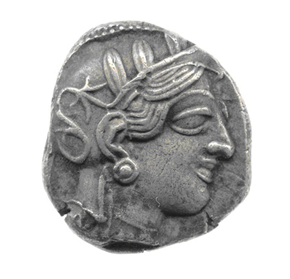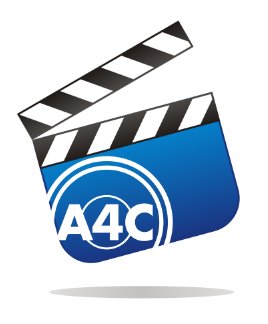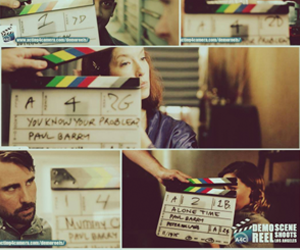The phrase ‘out of character’, when you think about it, is an oxymoron. If you are out of character, you are not the character. You are another character.
 It is said that the Ancient Greek etymology of the word kharakter derives from the marks, engravings, or scratches made on a coin, so that one might tell it apart from others. Think of our own currency, if the scratches weren’t there – or worse, if they kept changing – it would be impossible to distinguish one from another. It later came to be accepted that ‘character’, metaphorically, referred to etchings on the soul, distinguishing one human being from another.
It is said that the Ancient Greek etymology of the word kharakter derives from the marks, engravings, or scratches made on a coin, so that one might tell it apart from others. Think of our own currency, if the scratches weren’t there – or worse, if they kept changing – it would be impossible to distinguish one from another. It later came to be accepted that ‘character’, metaphorically, referred to etchings on the soul, distinguishing one human being from another.
Of people, Classical Greek philosopher, Plato, noted: ‘we are what we repeatedly do’. To paraphrase: ‘character’, as distinct from ‘personality’ (a whole other blog there), is simply ‘habitual action’. The unchanging etchings on a coin, effectively. Without specific mannerisms, traits, and behaviourisms, our friends and family might find it difficult to recognise us, or relate to us. When we behave in ways that surprise those who think they know us, we have simply drawn their attention to a less prominent scratch on our surface; not become a completely different coin. Just because we do not publically display all of our quirks, blemishes and scratchings, does not mean they don’t exist. Therefore, when we deliberately or inadvertently allow others to glimpse the entirety of our markings, we have not slipped out of character; we have momentarily revealed the totality of it.
So how do we deal with the times when our theatrical and cinematic alter egos perform actions or deliver dialogue that seem to contradict everything we have grown to know about them? An etching on the surface we formerly overlooked? Most commonly, we edit the text to make the job easier for ourselves, but the great actors honour the writer, by embracing the duality and finding the common denominator. (For a shocking look at ‘out of character’ behaviour in otherwise good people, watch this recreation of Stanley Milgram’s controversial Obedience experiment)
 Begin with yourself. When have you done something in your life that has drawn the observation from close friends that it was not the norm for you? Are you generally reserved, but cut loose on the dance floor at a party? Is it a sudden burst of passion for learning an instrument or language that has your family wondering where this new person came from? Do you keep your opinions largely to yourself, but occasionally speak up, much to the astonishment of those around you? Now, during any of these moments, can you honestly say you were ‘out of character’? Of course not. You were you, one hundred percent of the time. A part of you that people rarely see was illuminated on the surface momentarily, but due to the response it generally garners from people, it probably won’t be shown again for some time. It can be found though, if only someone were to look close enough. When the behaviour is uncommon in us, we see it as nothing special. To the observer though, it appears entirely off the wall. (See: Actor-Observer Asymmetry)
Begin with yourself. When have you done something in your life that has drawn the observation from close friends that it was not the norm for you? Are you generally reserved, but cut loose on the dance floor at a party? Is it a sudden burst of passion for learning an instrument or language that has your family wondering where this new person came from? Do you keep your opinions largely to yourself, but occasionally speak up, much to the astonishment of those around you? Now, during any of these moments, can you honestly say you were ‘out of character’? Of course not. You were you, one hundred percent of the time. A part of you that people rarely see was illuminated on the surface momentarily, but due to the response it generally garners from people, it probably won’t be shown again for some time. It can be found though, if only someone were to look close enough. When the behaviour is uncommon in us, we see it as nothing special. To the observer though, it appears entirely off the wall. (See: Actor-Observer Asymmetry)
Sit down with the text of a film, play, or audition, and decide on the two most extreme and contradictory pieces of behaviour in your character’s journey. Perhaps you are playing a kind, loving, altruistic person who, in one surprising scene, deliberately shuns a person in danger. This would certainly seem out of character, but given what we just discovered about ourselves in my examples above, we do not depart from our character; we reveal it.
Focus on the two contradictions you now hold in your mind. What is the common denominator? For example, ‘help others whenever they need you to’ is entirely different to ‘help others whenever you can afford to’. Is it possible that your character’s ‘habitual action’ is the latter rather than the former? If this is the case, your character is not motivated by unbridled altruism; they are driven, instead, by what ethicists would call Rational Selfishness.
 When they view them purely on a superficial level, Actors view such contradictions as errors, regardless of how many days, weeks, or years a writer may have spent crafting them to reflect the true human condition. However, finding the commonalities in seemingly contrary behaviour is the perfect way to portray the necessary elements of human psychological and emotional construction.
When they view them purely on a superficial level, Actors view such contradictions as errors, regardless of how many days, weeks, or years a writer may have spent crafting them to reflect the true human condition. However, finding the commonalities in seemingly contrary behaviour is the perfect way to portray the necessary elements of human psychological and emotional construction.
To assume that the behaviour we see in a person publicly and regularly is all there is to them, is to assume the most prominent marks on a coin are the only marks, which would be a mistake. You may buff a coin to make it shine, or gouge deeper troughs in its surface, but nothing you do will change a five-cent piece into a dollar coin.
If only.
Paul Barry is an actor, director, writer, teacher and blogger. He co-owns Acting 4 Camera and Showreels Australia. Paul lives in LA, but regularly teaches via Skype, all around the world.
(The blogs you see on www.acting4camera.com are free, but they don’t write themselves. If you find the information useful, feel free to donate below to keep them coming. Your contribution of any amount is graciously welcomed!)








Follow Us!